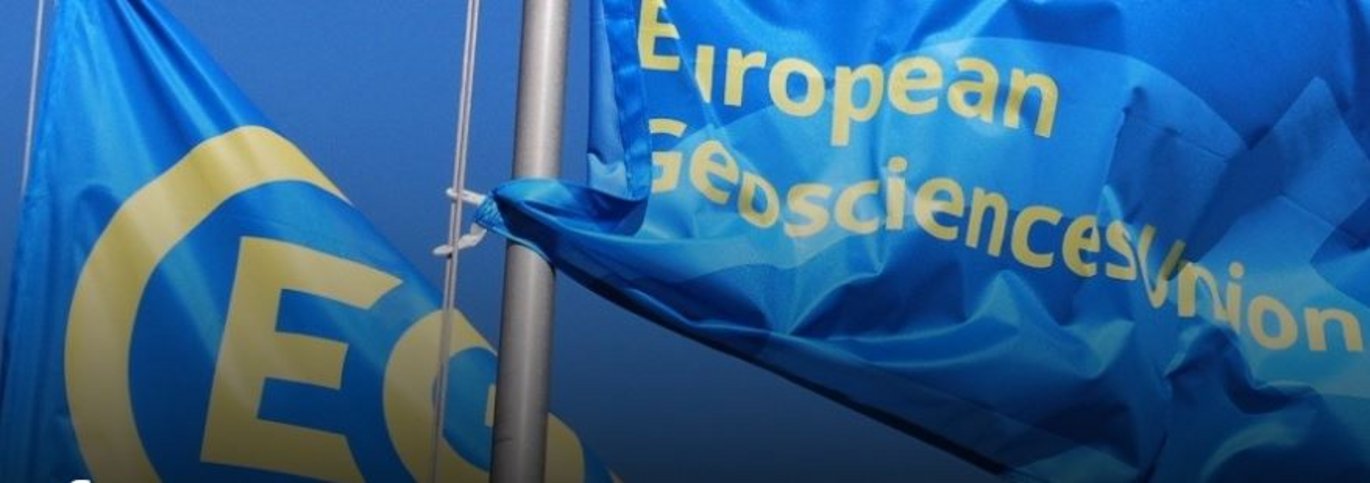Submit your abstract and join EJP SOIL at the EGU General Assembly 2023 in Vienna, Austria.
DEADLINE 10 January - You can still make it!

DEADLINE 10 January 2023 - at 13:00 CET - Abstract submission information
For more information: The EGU General Assembly 2023
SSS8.4 EDI
Soil indicators for assessing ecosystem services and soil health status
Soil functions contribute to provide (soil-based) ecosystem services (ES), here defined as the benefits human obtain from the ecosystem. Although most of these functions are related to the soil biological activity, the current status and trends in soil biodiversity across Europe are poorly known, and adequate taxonomical and functional indicators are needed to evaluate the vulnerability of soils and its ES to climate change. Thus, in order to assess the health status of soils, i.e. its capacity of continuous provision of ecosystem services, there is the need to define robust indicators for assessment and monitoring, in joint programming with participating Member States’ national policy and programmes for soil quality monitoring, with taking into account not only biological processes but embracing all the bio-chemical-physical processes occurring in soils. As soil-based ecosystem services co-occur in space and overlap interacting at different spatial and temporal scales, their spatial distribution, as well as their spatial synergies and trade-offs must also be known.
The aim of this session is then collecting contributions on functional indicators, their modelling and mapping, as well as methodological approaches and applications aimed to the characterization of bundles of soil ES and soil threats. The definition and evaluation of indicators including specific references to soil biodiversity and target values for healthy soils are particularly welcome.
Share: https://meetingorganizer.copernicus.org/EGU23/session/45296
Convener: Stefano Mocali | Co-conveners: Jack H. Faber, Isabelle Cousin, Romina Lorenzetti
SSS9.13
Measures for increasing soil organic carbon in agricultural soils are becoming increasingly popular as part of the global efforts to mitigate climate change. A large range of management strategies (e.g. minimizing soil disturbance, diversification of crop rotations, use of cover crops, incorporation of crop residues, addition of organic amendments, rewetting organic soils) are investigated in a range of socio-ecological contexts to evaluate their role of sequestering carbon in the soil.
Increasing organic carbon content in soils has several co-benefits, beyond climate change mitigation, including improvement of soil health, fertility and water holding capacity. On the other hand, agricultural strategies aimed at increasing carbon sequestration may affect other element cycles, with implications for greenhouse gas fluxes (N2O and CH4) fluxes, and losses of C, N and P to ground- and surface waters. Thus, the overall effect of these management practices needs to be evaluated to appropriately quantify their environmental impact.
In this session, we welcome contributions that give insights into the effects of agricultural management practices, aimed at improving carbon sequestration, on the greenhouse gas balance and on element losses to ground and surface waters. We welcome experimental, modelling or synthesis approaches, but a special focus will be given to studies trying to understand the causes and mechanisms of the observed trade-offs and/or synergies.
Share: https://meetingorganizer.copernicus.org/EGU23/session/46473
Convener: Eugenio Diaz Pines | Co-conveners: Tuula Larmola, Cristina Aponte, Mart Ros, Ana Meijide
SSS12.3
In Europe and beyond Carbon Farming has gained prominence as a mitigation option to reach targets set in the Paris Agreement and the European Green Deal. Enhancing the potential of soils to store more carbon while maintaining existing SOC levels, especially on peatlands and other carbon-rich soils, is a key lever for mitigating climate change. However, designing sound schemes that maintain or increase SOC content is challenging and there is a need for bringing agronomic insights into policy design and integrating insights from economics, sociology and political science.
In December 2022 the European Commission will outline a framework for Carbon Farming that will lay the foundation for developing public and private carbon farming initiatives. In order to ensure acceptance among land-users and policymakers, there is a need to understand how such practices can be implemented in current farming systems across Europe, along with the necessary Monitoring, Reporting and Verification systems.
Designing effective schemes is a complex process in which a number of challenges need to be addressed, including: (1) minimizing costs (of incentives and MRV), (2) environmental performance (effectiveness, additionality and additional ecosystem services) and (3) social (fairness, legitimacy and land-user engagement). Therefore, a successful scheme design needs to balance these diverse considerations. This session invites presentations that discuss challenges and opportunities for designing robust Carbon Farming schemes that prevent emissions of GHG from agri-food system, while at the same time being socially acceptable and economically viable. Particular attention will be given to the opportunities to develop result-based carbon farming schemes where payment levels reflect the actual impact of the management practices on carbon stocks (relative to a benchmark).
Share: https://meetingorganizer.copernicus.org/EGU23/session/45034
Co-organized by CL3.2
Convener: Martin Thorsøe | Co-conveners: Andreas Baumgarten, Morten Graversgaard, Peter Kuikman, Cristina Arias-Navarro